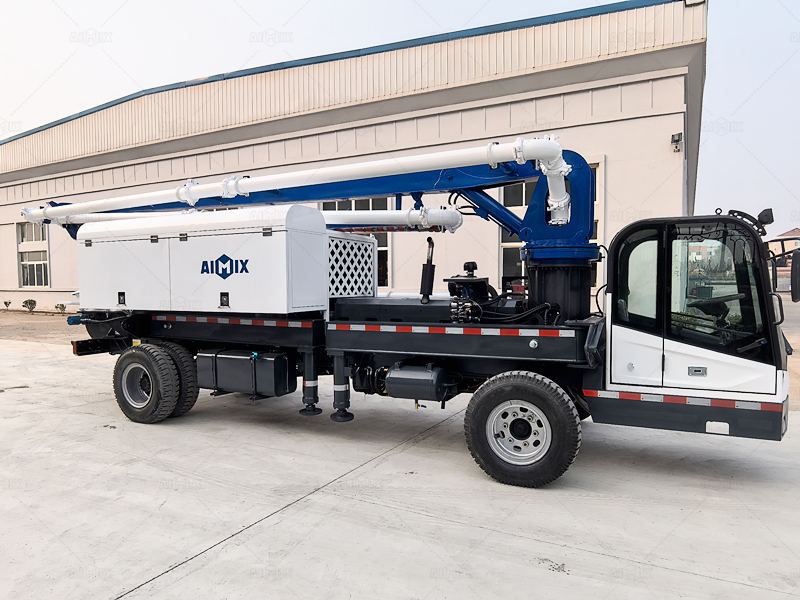Can a 60 TPH Portable Asphalt Plant Meet Village Road Construction Needs in Indonesia?
- aimixglobal5
- Oct 14, 2025
- 4 min read
In many parts of Indonesia, village road construction has become an essential part of improving local connectivity and economic development. For contractors and local governments, choosing the right asphalt plant is a key decision that affects both project cost and efficiency. One common question is: can 60 TPH portable asphalt plants for sale handle the needs of village road construction? Let’s explore this from a practical and customer-focused perspective.

Understanding the Needs of Village Road Projects
Village road construction projects are usually small to medium in scale. Unlike highway or airport projects, these roads often serve local communities, connecting rural areas with nearby towns or agricultural zones. Therefore, the required asphalt volume per day is relatively lower.
Most village roads in Indonesia range from 3 to 5 meters in width, with lengths varying between a few hundred meters to several kilometers. For such projects, producing asphalt at around 40–60 tons per hour is often sufficient. That’s where a 60 TPH portable asphalt plant fits perfectly.

Why a 60 TPH Portable Asphalt Plant Matches Local Project Demands
A 60 TPH asphalt mixing plant mobile provides a good balance between productivity and flexibility. It’s not too large to move, but powerful enough to supply continuous asphalt for small and medium-scale road works. In addition, since it is portable, contractors can move it easily from one site to another, reducing the need to buy asphalt from external suppliers.
Besides, most Indonesian village road projects operate within tight budgets and time frames. Transporting asphalt from a distant stationary plant can increase cost and reduce quality due to temperature loss during transit. Producing asphalt directly on site with a portable plant helps solve both issues—lowering logistics costs and ensuring better paving quality.
Efficient for Short-Term or Scattered Projects
In many regions, contractors work on multiple village roads that are several kilometers apart. Setting up a stationary plant for such scattered projects isn’t practical. A portable asphalt plant can be transported quickly by truck, allowing contractors to finish one project and move to the next with minimal delay. This mobility saves both fuel and time while keeping the asphalt hot and workable.

Performance and Technical Considerations
When evaluating whether a 60 TPH plant is sufficient, it’s important to look at production stability, fuel efficiency, and mixing quality. For most rural road pavements, the target production is around 400–600 tons of asphalt per day. A 60 TPH aspal mixing plant can easily achieve this in one working shift of 8–10 hours.
Moreover, modern 60 TPH portable asphalt plants often come equipped with advanced burners, dust collectors, and computerized control systems. These features not only improve mix consistency but also reduce environmental impact—an increasingly important factor in Indonesia’s push for greener construction practices.
Example Scenario: Building Access Roads for a Rural Village
Imagine a project in Central Java aiming to build 5 kilometers of rural road with a 4-meter width. The required asphalt volume is around 800–900 tons in total. With a 60 TPH portable asphalt plant, this amount can be produced in about two working days. The plant can then be moved to the next nearby village without dismantling major components, making the workflow efficient and economical.

Comparing Portable and Stationary Plants for Rural Use
While stationary asphalt plants are ideal for large-scale, long-term production, they are less practical for small or temporary rural projects. Portable plants, on the other hand, provide higher flexibility and faster setup times. They require less land, fewer workers, and lower transportation costs for finished asphalt. As a result, many contractors in Indonesia’s provinces prefer the 60 TPH portable model for their rural road programs.
In short, for most village-level or district-level road projects, investing in a 60 TPH portable asphalt plant offers an optimal balance between cost, capacity, and convenience.
Key Benefits for Indonesian Contractors
Let’s summarize the main advantages that make this plant size suitable for Indonesian conditions:
✔ Ideal capacity for small to medium road projects (40–60 tons/hour)
✔ Easy to move between multiple job sites
✔ Faster installation and startup time
✔ Lower transportation and asphalt delivery costs
✔ Consistent asphalt temperature and quality on site
✔ Environmentally friendly design with dust control
These benefits directly translate to higher efficiency and faster project completion—key priorities for contractors working on government-funded village infrastructure programs.

Conclusion: A Smart Choice for Local Road Development
So, can a 60 TPH portable asphalt plant meet the needs of village road construction in Indonesia? The answer is yes. For most rural projects, it delivers just the right output, mobility, and cost efficiency. Contractors can easily adapt to changing job locations while maintaining stable asphalt quality and production speed.
If you’re planning to invest in an asphalt plant for local or district road projects, consider how a portable setup could simplify your operations. With the right configuration and after-sales support, it can help you complete projects faster and more profitably.
Looking for a Reliable Portable Asphalt Plant?
I provide portable asphalt mixing plants that are designed for Indonesian road conditions and project scales. Our plants combine high-quality mixing performance with easy transportation and quick setup. If you’d like to learn more or get a quotation for your project, feel free to contact me today. Let’s make your next village road project faster, smoother, and more efficient.




Comments